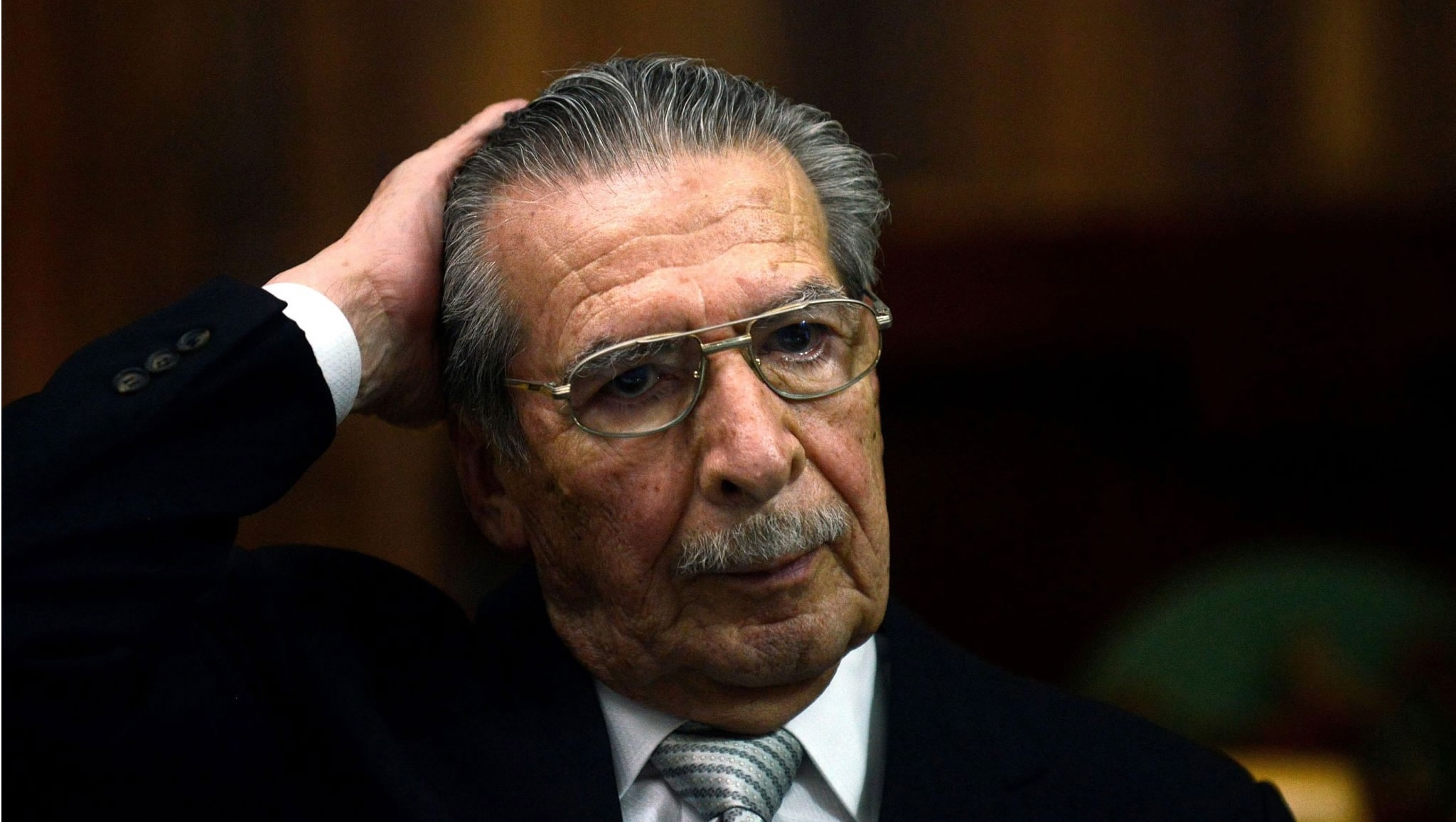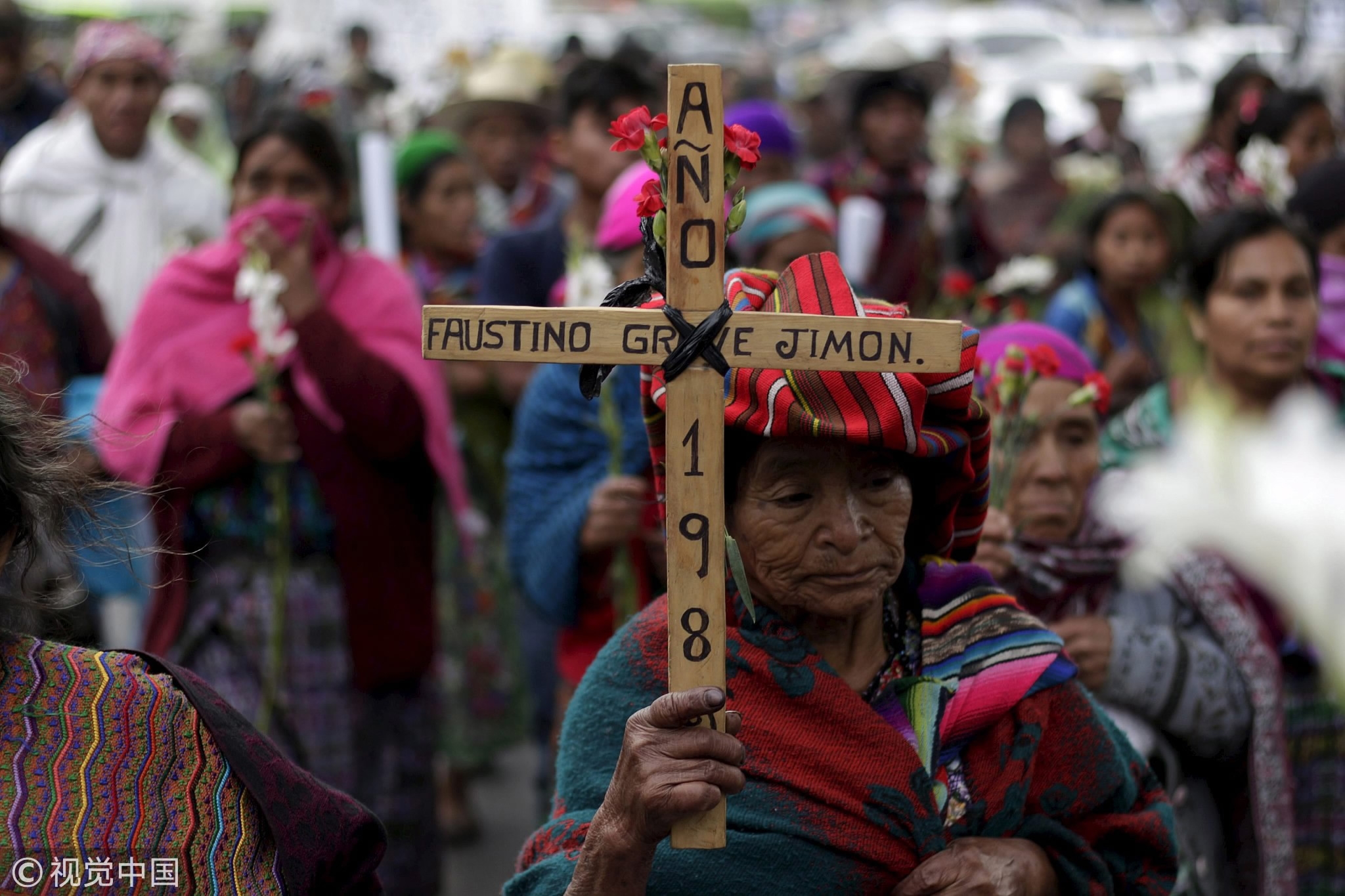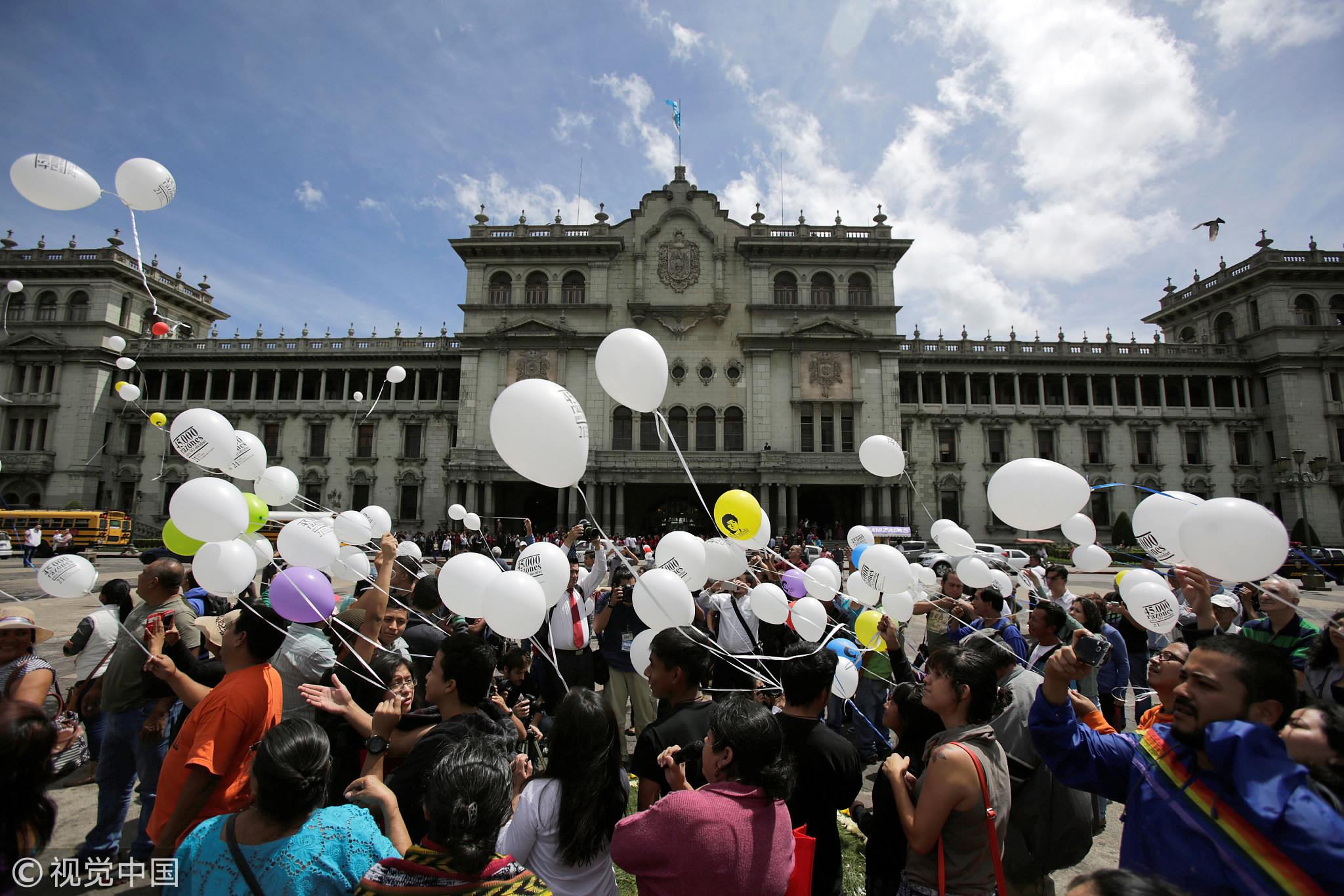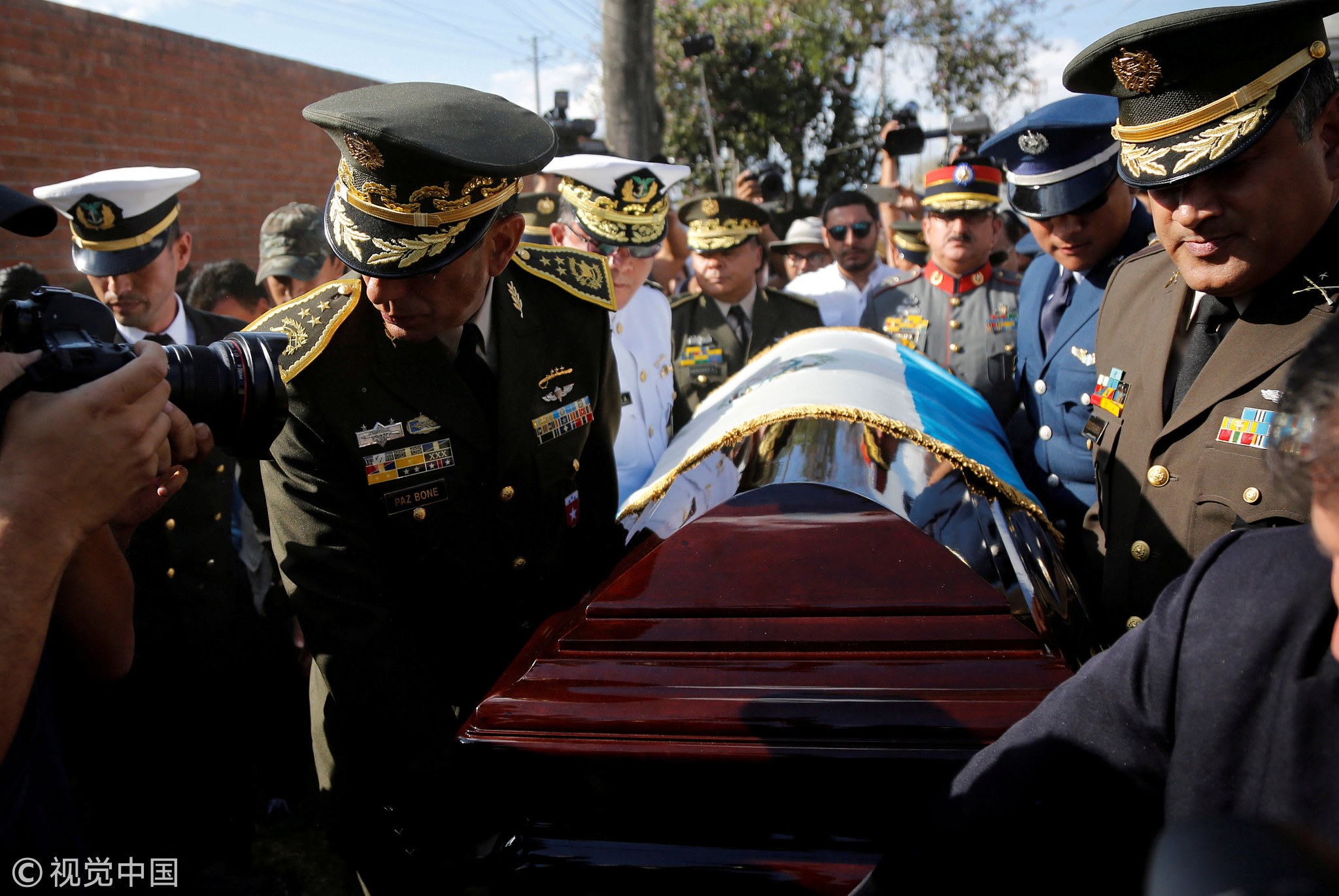
World
12:14, 02-Apr-2018
Ex-Guatemalan dictator Rios Montt, accused of genocide, dies
CGTN

Former Guatemalan military dictator Efrain Rios Montt, accused of genocide and facing a retrial for the killing of nearly 1,800 indigenous Maya people during his rule in the 1980s, died on Sunday aged 91, sources close to his family said.
Rios Montt "died in his home, with the love of his family and a clear conscience," his lawyer Luis Rosales told reporters.
A bitterly divisive figure who ruled Guatemala in 1982-1983, Rios Montt was accused of orchestrating an extermination policy against the indigenous population and was charged in 2012 with the murder of 1,771 indigenous Ixil-Maya people during his short reign, which came at the height of a brutal 36-year civil war.

An indigenous woman holds a cross during a march to commemorate the National Day of Dignity for the Victims of Armed Internal Conflict in Guatemala City, February 25, 2016. /VCG Photo
An indigenous woman holds a cross during a march to commemorate the National Day of Dignity for the Victims of Armed Internal Conflict in Guatemala City, February 25, 2016. /VCG Photo
He was convicted in 2013 of genocide and crimes against humanity – the first time a Latin American ex-dictator had been convicted of genocide – and received an 80-year sentence.
But the verdict was overturned just days later because of a "procedural error", and a new trial was ordered.
Rios Montt denied the charges against him at the time, saying: "I never authorized, never signed, never ordered an attack against a race, an ethnicity or a religion. I never did it!"
Born on June 16, 1926 in Guatemala's remote Huehuetenango province, Rios Montt had humble beginnings before enlisting in the army and rising through the ranks.
A general by 1972, he ran for the presidency two years later but lost and went to Spain, serving as a military attaché. He returned to Guatemala in 1977 and in March 1982, headed a junta that removed President Angel Guevara from power.

Activists and family members of forcibly disappeared victims of the Guatemalan armed conflict (1960-1996) hold balloons during the commemoration of the National Day Against Forced Disappearance in downtown Guatemala City, Guatemala, June 21, 2016. /VCG Photo
Activists and family members of forcibly disappeared victims of the Guatemalan armed conflict (1960-1996) hold balloons during the commemoration of the National Day Against Forced Disappearance in downtown Guatemala City, Guatemala, June 21, 2016. /VCG Photo
During his 18-month rule, ruthless even by the standards of Latin American dictators, Rios Montt engaged in a "scorched earth" policy against dissidents, wiping out entire rural towns where leftists were suspected of living or having support.
He appointed judges who mounted summary trials and ordered numerous alleged criminals – often leftist rebel sympathizers or militants – executed.
US President Ronald Reagan praised him in 1982 as "a man of great personal integrity and commitment". As evidence of gross human rights violations mounted, Rios Montt's defense minister, General Oscar Mejia, ousted him from office in August 1983.
Two decades in Congress afforded him parliamentary immunity but when he stepped down in 2012, he was slapped with charges of genocide and put under house arrest.
His lawyers sought to block proceedings, arguing his health was too poor and he suffered from dementia, but a new genocide trial began against him in 2017.
On Sunday afternoon, Rios Montt was buried at an upscale cemetery of Guatemala City in a closed ceremony attended by military officials, close friends and relatives.

Guatemalan military officers carry the coffin containing the body of former Guatemalan military dictator Efrain Rios Montt during his funeral in Guatemala City, April 1, 2018. /VCG Photo
Guatemalan military officers carry the coffin containing the body of former Guatemalan military dictator Efrain Rios Montt during his funeral in Guatemala City, April 1, 2018. /VCG Photo
President Jimmy Morales expressed his condolences in a brief statement, while other leaders on the right also paid their respects.
Outside the National Palace in Guatemala City however, a few protesters held placards reading: "There will be no forgiveness."
Rigoberta Menchu, a Guatemalan activist and Nobel Peace laureate who fought for victims of the conflict, said the death of the general would give some a measure of closure.
"Either way, for us, the victims, he has already been judged, and the crimes have been set out," she said.
(Top picture: Efrain Rios Montt gestures during his trial on charges of genocide in Guatemala City on April 30, 2013. /VCG Photo)
13357km
Source(s): AFP
,Reuters

SITEMAP
Copyright © 2018 CGTN. Beijing ICP prepared NO.16065310-3
Copyright © 2018 CGTN. Beijing ICP prepared NO.16065310-3